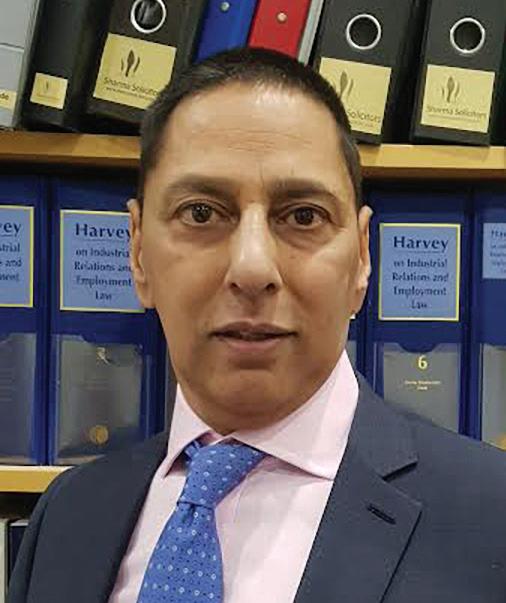
4 minute read
OPINION
Putting Council reps firmly in the TLS driving seat
Paul Sharma represents Central London on the TLS Council and is also a member of Policy and Regulatory Affairs Committee
Ibelieve that members, Council representatives and staff have to do more work together to ensure that TLS is driven primarily by its member interests. The Council currently faces that mission in dealing with CILEX, Council transparency and supporting members facing the Solicitors Disciplinary Tribunal (SDT).
Government as back seat driver
In October 2023, Council representatives asserted their own rights to determine TLS decision making in a way that had not happened for a long time.
In meetings of the Council on 11 and 17 October, representatives interrupted the usual agenda process by raising motions that had widespread support.
The typical Council meeting involves papers with facts, analysis and a course of action written by staff members that Council representatives are called on to support.
The issue regarding the SRA regulation of CILEX seemed to be going in that direction when first raised in 2021. Afterall, the proposal was backed by government, SRA and the Legal Services Board. So, why not have paralegals claim the public status of solicitors without the onerous training?
From 2022, Council members flashed the red light to the regulation proposal and directed the TLS to do the same. Members then wanted to fully thrash out the issue and called for a special Council meeting in October 2023 to do just that.
At the meeting, TLS research staff produced a report that showed that on balance solicitors were against the proposal and currently whereas 60% of the public associated solicitors with the term 'lawyer', only 12% did so for paralegals.
Following the debate, TLS put out a press release that reflected members feelings. The new President, Nick Emmerson said: “There are serious issues with the proposals, which are unsupported by evidence that they will benefit the public and do not consider the wider regulatory context or the serious negative impact these changes will have on solicitors and chartered legal executives."
TLS has now given the green light to asserting its position to represent members rather than allow government to drive them to a particular direction.
Driving change
I had my first meeting in November 2023 after my election as a representative on the Policy and Regulatory Affairs Committee (PRAC). PRAC reports to the TLS Board on legal policy and regulatory issues relevant to solicitors. I found myself having to bring up TLS's habit of making its Council and committee agenda confidential and not fully explaining why. This prevents Council representatives talking to their members about certain decisions.
I thought things should change and TLS should support its own values of transparency after a motion in the July 2023 Council meeting. I had introduced the motion that was backed by Council representatives and that called on TLS staff to fully explain why certain Council and committee agenda items are confidential.
So, I was surprised to see the same inadequate explanation on agenda papers at the November PRAC. I felt impelled to point this out with a point of order. The meeting was told that the Board was considering how to implement the motion. I have a watching brief on this matter.
I am also active on the issue of how best to support members who appear before the SDT and there is some movement on this issue. Members need funds in order to obtain legal representation. Currently, there is no equality of arms because the SDT can spend a small fortune on getting barristers to beat up on members, whether or not it is deserved.
The Board is discussing the issue, and a paper is expected to go to the Council. I have made representations to the TLS chief executive, Ian Jeffrey, and Board chair, Robert Bourns. We need a working group find out how to cut the gordian knot of financing members without breaking any rules. I will report back on any developments.

Paul Sharma
Council member for Central London








